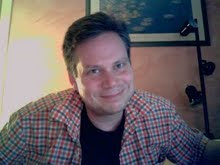Prep/additional material
Ordesky's Scala book - Covers the basics and is a good reference.
Scalaz Resources for Beginners - A good index to scalaz resources
Introduction to Category Theory and the follow-up, Applicatives are generalized functors
Scala In Depth - Great for understanding Scala's type system and standard collections library, functional programming concepts, and much more. The best Scala book, IMHO
Functional Programming in Scala Early Access Book - Great background in functional programming with many of the examples and concepts mirroring Scalaz (appropriate since the authors are two of the main Scalaz committers)
Monadic Design Patterns for the Web - Actually, I'd recommend reading this *after* absorbing the rest of the material on this page: it's not for the faint of heart and assumes quite a bit of knowledge around advanced functional programming, logic and abstract algebra concepts but it's really worth getting through.
High Wizardry in the Land of Scala - Daniel Spiewak's wonderful talk on typeclasses, types and kinds, and more.
Extreme Cleverness - Functional Data Structures in Scala - Daniel Spiewak's great talk on persistent data structures.
BASE Scalaz Talk - Bay Area Scala Enthusiasts talk from Adam Rosien of Box.
Scalaz Cheatsheet
Scalaz Scaladoc
Mike Pilquist's Scalaz Overview Presentation
Mike Pilquist's Scalaz State Monad Presentation
Advanced Stream Processing - A talk on advanced stream processing given by Scalaz commiter Paul Chiusano at NE Scala 2013
Debasish on Monad Transformers
Precog Blog: Monad Transformers with Scalaz
Stackless Scala with Free Monads
The Essence of the Iterator Pattern
Enumeration with the Iteratee
Runar on Scalaz (Infoq)
Precog Blog: Abstracting over Futures with Scalaz
Learning Scalaz 7 in 18 Days
Day 1 - Typeclasses 101Day 2 - Functors
Day 3 - Types and Kinds
Day 4 - Functor Laws
Day 5 - Monads
Day 6 - for comprehensions
Day 7 - Applicatives and Applicative Builders
Day 8 - Monadic functions
Day 9 - Zippers and Tree
Day 10 - Monad Transformers
Day 11 - Lenses
Day 12 - Folding, Unfolding, Traversal and Iterators
Day 13 - Implicits and scalaz imports
Day 14 - Giving back: contributing to scalaz
Day 15 - Misc typeclasses (Arrow, Category, Unapply, etc.)
Day 16 - Memoization
Day 17 - IO Monads and Iteratees
Day 18 - Free Monads



